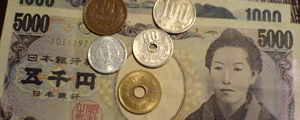
SEOUL — China and South Korea’s anxiety over the rapidly falling yen came to the fore yesterday as senior officials said their exporters could be hurt by Japan’s attempts to pull its moribund economy out of a two-decade slump.
Reuters
Beijing and Seoul understand the need for Tokyo to revive its $5 trillion economy and escape persistent deflation.
But they are worried that the massive monetary and fiscal stimulus championed by Japanese Prime Minister Shinzo Abe has sharply weakened the yen and put their exporters at a disadvantage in global markets.
So far, Chinese and South Korean officials have refrained direct action to maintain competitiveness, such as intervening by buying dollars in currency markets, but there is a risk of a response if their export sectors are severely hampered.
“(Japan) will look to keep the economy growing by boosting exports through the yen’s depreciation,” Xu Shaoshi, chairman of China’s National Development and Reform Commission, said at a meeting with the South Korean finance minister in Seoul.
“This is a policy that will affect South Korea and China and, therefore, needs to be monitored closely,” Xu said.
The yen fell to a five-year low against the dollar yesterday and has plunged 26% over the past 15 months.
- Chamisa under fire over US$120K donation
- Mavhunga puts DeMbare into Chibuku quarterfinals
- Pension funds bet on Cabora Bassa oilfields
- Councils defy govt fire tender directive
Keep Reading
With the Chinese yuan and Korean won both gaining against the dollar this year, the impact has been even more pronounced on the exchange rates between three of the world’s top seven exporting nations. The yen hit a 15-year low of 5,7533 yuan and a 5-year low of 9,9983 won yesterday.
Over the past 15 months, it has weakened by nearly 30% against both currencies, Thomson Reuters data shows.
South Korean Deputy Finance minister Eun Sung-soo told Reuters that Seoul was concerned by the yen’s fall at a time when the won was strengthening.
One prong of Abe’s policies, known as “Abenomics”, has been to stoke demand to generate inflation. As part of that, the Bank of Japan is increasing base money, or cash and deposits at the central bank, at an annual pace of 60 trillion yen to 70 trillion yen ($570 billion to $665 billion).
Apart from the increased money supply pushing down the exchange rate, Japan’s very low interest rates means investors can borrow funds in yen cheaply and then convert them and invest in other countries — helping further depress the yen.
The US Federal Reserve’s asset-buying stimulus also saw the dollar weaken as funds released by the central bank were invested in emerging economies.
China is the world’s largest exporter, Japan the fourth and South Korea the seventh during the first nine months of this year, World Trade Organisation data shows.











